|
| A KPIX report on May 8, “Port of Richmond Sees a Spike in Coal Exports” brought new attention to the subject of coal exports from Levin Terminal in Richmond, a privately owned component of what comprises the greater “Port of Richmond.” Confusingly, the City of Richmond also owns and operates, mainly through leases, a portion of the greater “Port of Richmond” as a City department that is confusingly also called the “Port of Richmond.”
In 2015, the Richmond City Council banned coal exports from the City-owned “Port of Richmond.” Since then, coal exports from Richmond have been the subject of regular media coverage. See:
There are two broad concerns about coal exports:
In the past, Richmond’s hands have been largely tied insofar as regulating coal transport and shipping for two reasons:
- Rail transportation, including that of coal, is federally regulated, and federal preemption makes it almost impossible for local jurisdictions to impose any regulation over the movement by rail.
- Coal shipment has been ongoing at Levin Terminal for several years, and is arguably a permitted land use at a designated port facility. While it is accepted that some volume of coal dust escapes the Levin facility, the amount and distribution is unknown, making it difficult to regulate it as a local nuisance or health hazard. The City does have land use jurisdiction, but it is largely limited to regulating new facilities and structures. This type of authority has been used successfully to stop proposed new petroleum terminal facilities at Benicia and San Luis Obispo.
There has however, been talk of regulating it. In 2015, the Richmond City Council resolution approved by a 6-1 vote called on the Bay Area Air Quality Management District “to regulate the storage, handling and transportation of coal and petroleum coke (known as petcoke), a byproduct of oil refining that emits up to 10 percent more carbon when burned. A related resolution was approved “opposing mining, export and burning of coal, and the transportation of coal and petroleum coke (“petcoke”) along California waterways and through densely populated areas.”
Three years later, the BAAQMD has taken no action other than to talk about it. There is hope, however, that particulate pollution in Richmond may get more intense study through AB 617, if Richmond becomes a designated community.
The KPIX report pointed out what appears to be a major expansion of coal exports from Richmond that may give the City a more solid foundation for local regulatory actions. KPIX reported a nearly ten-fold increase of volume from 2016 to 2017 based on U.S. Census statistics. Levin Terminal sources disputed the numbers and provided their own, which were equally shocking and, in fact, exceeded those from U.S. Census data.
Coal Shipments from Levin Terminal, Richmond CA
Metric ton: a unit of weight equal to 1,000 kilograms (2,205 lb)
Year |
Source: U.S. Census (Metric Tons) |
Source: Levin Terminal (Metric Tons) |
2013 |
176,106 |
|
2014 |
540,388 |
|
2015 |
453,637 |
986,649 |
2016 |
120,907 |
377,883 |
2017 |
1,077,754 |
1,159,386 |
2018 thru March |
231,122 |
372,497 |
Interestingly, Richmond Port Director Jim Matzorkis wrote via email, “We do not have any specific data regarding coal exports at Levin Richmond Terminal. They do not supply that type of information to us.” But according to Levin, “We provide the annual commodity tonnages each year to Janie Singleton at the Port of Richmond.”
Meanwhile, it appears that the City of Richmond may have new and stronger opportunities to exercise regulation over Levin’s coal operations, at least reducing or eliminating the nuisance and public health hazards resulting from unloading trains, storage and ship loading. Here is how:
- The underlying zoning for Levin Terminal allows “mineral storage” only with a Conditional Use Permit (CUP). Coal is a “mineral.” Outdoor storage (Note L4) is allowed as an accessory use for “marine-related industrial uses” but it arguably requires a CUP for coal (mineral). If Levin has been expanding coal storage, it is no longer a legal non-conforming use.
- The bulkheads for the coal storage areas are shipping containers stacked three high. They violate 15.04.610.400 of the Richmond Zoning Code because they exceed two high and they are visible from a public right of way. They are also required to be “fully screened.” Arguably, they also require a building permit with engineering design for seismic safety and proof that the pier structure can support them.
- There is a new structure made of stacked shipping containers with a metal arched roof just east of the north end of the Laurentzen Channel. It is so new that it doesn’t even show up in the current version of Google Earth. Based on a review of City records, there is no permit for this structure.
- It is clear that coal dust is escaping from the property into at least 4th Street, because Levin machine and hand sweeps it constantly to keep it under control.
It appears that coal and petcoke storage and shipping have now become the dominant operations at Levin Terminal. I am recommending that the City of Richmond inform Levin that its coal operation is illegal and must cease unless Levin applies for and is granted a CUP.
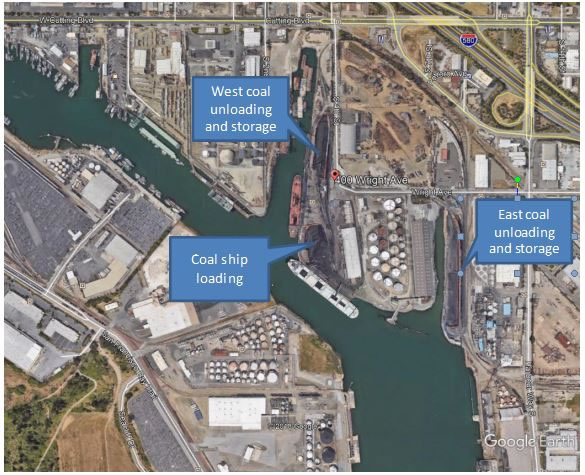

Excerpt from Zoning Standards for Industrial Zones. IW (Industrial Water Related, is the right column
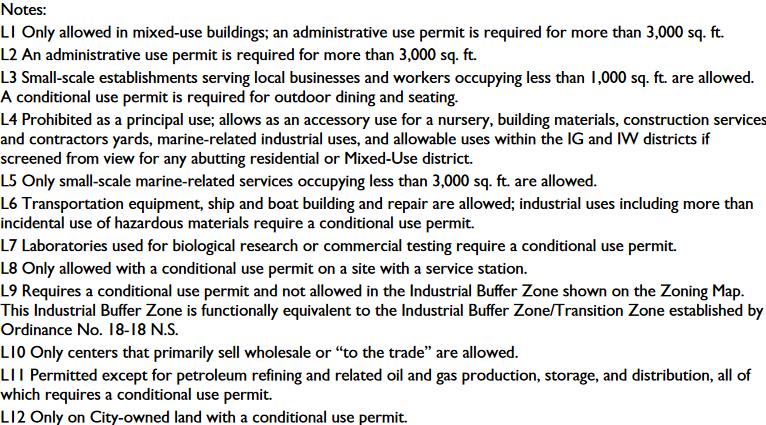

Excerpt from RMC 15.04.610. 400
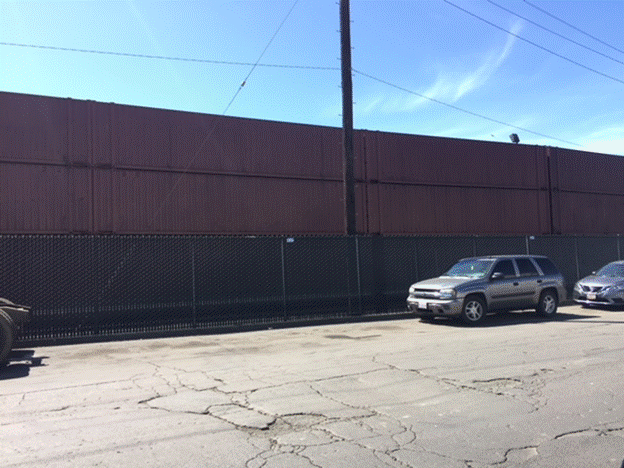
Coal bulkhead made of shipping containers stacked three high
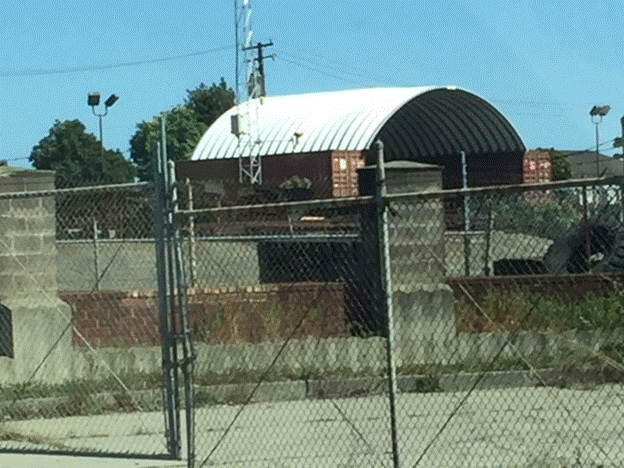
Unpermitted structure at Levin Terminal
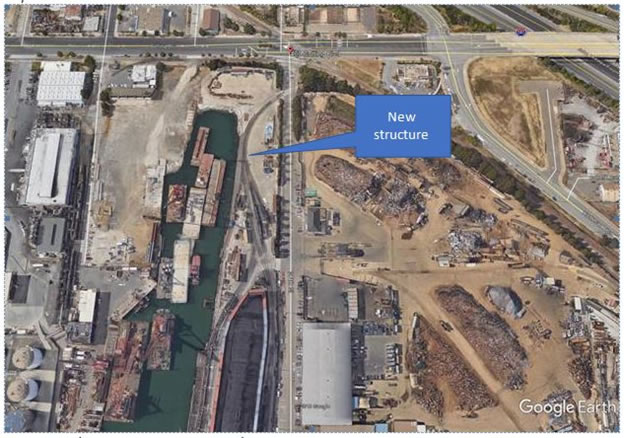
Unpermitted structure at Levin Terminal
Port Of Richmond Sees A Spike In Coal Exports
By Andria BorbaMay 8, 2018 at 7:02 pm
Filed Under:Coal, Exports, Oakland, Richmond, Terminal
RICHMOND (KPIX 5) – People in Richmond have been complaining about more coal trains rumbling through their neighborhood and we got a hold of numbers that show a large increase in coal exports at the Port of Richmond.
It comes after Oakland successfully blocked a coal terminal.
So, is Richmond getting Oakland’s coal?
At the Levin-Richmond Port, coal has been piled up and is visible to the naked eye from above.
Data from the U.S. Census Bureau, which tracks trade, shows that in 2015 the port exported 453,000 metric tons of coal.
That dropped to 120,000 metric tons in 2016.
But last year, exports skyrocketed to more than 1 million metric tons, mainly headed to overseas markets in Asia.
“I hadn’t been informed of it,” said Richmond Mayor Tom Butt. “I had always assumed it was about the same.”
The port told KPIX 5 last week that coal exports have been about the same.
But when we told spokesman Jim Holland about the census bureau numbers, he said he had made an “honest mistake.”
Holland has refused multiple times to give an on-camera interview.
“I’ve heard a couple of people postulate that perhaps the coal that would’ve gone to Oakland is now going to Richmond. I don’t know that that’s true,” said Mayor Butt.
What the port did confirm was that the increased numbers are coming from mines in Utah and Colorado, owned by the same company partnering with Phil Tagami in Oakland, who tried and failed to build a coal shipping port there.
“The real question is what kind of health and environmental impact does it have? And that’s a tough question. I think there’s a lot of assumptions that there’s a lot of coal dust floating around and that may in fact be the case,” Mayor Butt said.
Julia Walsh is a retired public health professor at UC Berkeley and she says Richmond and Western Contra Costa County have increased rates of asthma.
She said more coal would only exacerbate that.
“That is appalling,” Walsh said. “Yes, I knew that it had substantially increased and when you have these coal trains coming through, they produce a tremendous amount of dust.”
The Port of Richmond provided their own numbers on Tuesday afternoon, saying the U.S. Census numbers are not correct. What those port numbers also show is a significant spike in coal deliveries to the Port of Richmond.
Because the port is privately owned, the city of Richmond cannot do anything to stop or halt or slow the deliveries of coal to the port. Only the federal government can regulate that. |

